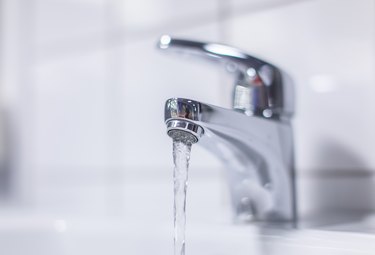The article underneath in relation to Low Water Pressure in the House? is especially enlightening. Read it yourself and figure out what you think about it.

Low tide stress in your home can be a discouraging issue, affecting whatever from bathing to cleaning meals. If you're experiencing weak water flow, there are several possible reasons and solutions to explore. In this guide, we'll talk about common factors for low tide stress and functional actions to address the issue properly.
Intro to Low Water Pressure
Low water pressure occurs when the flow of water from your faucets, showers, and various other components is weaker than typical. This can make daily tasks more tough and much less reliable. Recognizing the causes of low water pressure is important to locating the ideal remedy.
Usual Reasons For Low Tide Pressure
Faulty Pressure Regulatory Authorities
Stress regulators are accountable for preserving regular water stress in your home. If they malfunction, it can lead to low water stress or irregular circulation throughout your home.
Municipal Water Issues
In some cases, the trouble lies outside your home. Community water supply concerns, such as main line leakages or upkeep work, can momentarily lower water stress in your area.
Pipe Obstructions
In time, pipes can come to be obstructed with natural resource, sediment, or debris, restricting the flow of water. This is an usual problem in older homes with galvanized steel pipes.
Deterioration
Corrosion within pipelines can bring about leaks and lowered water pressure. Rust build-up can tighten water flow, especially in aging plumbing systems.
How to Diagnose Low Water Stress
Checking Pipes
Inspect visible pipes for indications of leakages, deterioration, or obstructions. Focus on any kind of uncommon sounds, such as knocking or rattling pipelines, which might indicate issues within the plumbing system.
Consulting with a Plumber
If you're not able to identify the cause of low water pressure, consider working with a professional plumber to carry out a comprehensive assessment. They can recognize underlying issues and suggest suitable options.
Checking Faucets and Components
Start by checking the water pressure at various faucets and fixtures throughout your home. If the concern is separated to specific locations, it may show local issues.
DIY Solutions to Repair Low Tide Stress
Flushing Water Heater
Sediment build-up in the water heater can restrict circulation and reduce efficiency. Flushing the storage tank occasionally helps get rid of sediment and preserve ideal efficiency.
Checking Stress Regulatory Authority
Make certain that the stress regulator is operating appropriately. Adjusting or changing the regulator can aid recover correct water pressure throughout your home.
Cleansing Aerators and Showerheads
Natural resources can build up in aerators and showerheads, lowering water circulation. Remove and clean these elements consistently to boost water pressure.
Clearing Clogs in Piping
For minor blockages, attempt using a plumbing serpent or chemical drainpipe cleaner to clear blockages in pipelines. Beware when utilizing chemicals and adhere to safety standards.
When to Call an Expert Plumber
If do it yourself efforts stop working to resolve the issue or if you presume substantial plumbing troubles, it's finest to seek aid from an accredited plumber. They have the proficiency and devices to attend to complex concerns securely and properly.
Safety Nets to Keep Water Pressure
Mounting a Pressure Booster
Take into consideration mounting a stress booster pump to enhance water pressure in locations with regularly reduced flow. This can be especially valuable for multi-story homes or homes with high-demand components.
Monitoring Water Usage
Bear in mind water usage routines and prevent overtaxing the plumbing system. Straightforward changes, such as shocking showers and laundry lots, can aid maintain ample water stress.
Regular Maintenance
Schedule routine maintenance for your plumbing system to avoid problems such as corrosion, leaks, and obstructions. Dealing with small problems early can aid avoid even more considerable repair services later.
Conclusion
Managing low tide stress can be discouraging, however identifying the underlying causes and carrying out proper solutions can recover ideal flow throughout your home. Whether it's cleansing aerators, checking pipelines, or talking to a plumber, taking proactive actions can make sure a constant supply of water for your everyday demands.
How to Fix Low Water Pressure In Your Home
Municipal Water Supply Issues
Scheduled maintenance, high demand, and water main breaks are all potential causes for low water pressure within a city or county’s water lines. While there’s not much you can do to personally fix a problem with your city or county’s water supply system, you can play a big role in documenting the issue and alerting those who can.
How to fix it:
Ask your neighbors if they are experiencing any issues with low water pressure. If multiple homes are affected, it’s likely related to the city’s water line. Contact the local Water Authority to see if there is any maintenance taking place that might be affecting your supply. Also let them know of your specific issues. If other homeowners report the same issues, they’ll know that there could be a larger issue to look into. Faulty Fixtures
A damaged or clogged shower head, faucet or appliance is the first thing we’d suggest checking, especially if low water pressure appears to be isolated to a specific area of your home.
How to fix it:
First, turn off the main water supply to your home. Check the affected appliances for build-up or debris. In the case of a faucet, you can simply unscrew the aerator at the tip of the faucet. Showerheads should be fully detached from the water pipe. While the appliances are detached, you may want to check the water supply to determine if the fixtures were in fact the issue. To clean, soak the showerhead or aerator in vinegar and brush off any visible debris. Reattach the fixtures and check the water pressure again. If it is still low, there is likely a deeper issue at hand, which can be determined by a professional plumber. Pipe Obstructions
Mineral deposits, rust or other debris within water pipes can lead to blockages or corrosion over time.
How to fix it:
When you think of a clog, you probably think of a drain clog. While there are many DIY solutions to clearing a drain, clogs in a water pipe will almost always require the help of a professional plumber. A plumber will be able to locate the affected pipe and clean out any debris or mineral deposit buildup. In severe cases, the pipe may need to be replaced. Your plumber might also recommend a water softening system to remove the minerals from your home’s water supply that can contribute to pipe blockages over time.
Plumbing Leak
Undetected water line leaks can divert water away from your residential pipes, reducing the water pressure in your fixtures.
How to fix it:
Check your water meter by turning off all water sources and monitoring the meter for any movement, which could be a clear indicator of a potential leak. Check all visible pipes for signs of leaking, including water stains, active dripping or damp spots around the pipe. Inspect fixtures, including faucets and showerheads, for any drips. Test the pressure but recording the pressure with the main water valve shut off. Leave off for a few hours and test again. A significant drop in pressure is a clear sign of a leak. https://kiddcoplumbing.com/plumbing-blog/how-to-fix-low-water-pressure/

I ran across that review on Low Water Pressure in the House? when doing a search on the search engines. Are you aware of another person who is truly interested in the subject? Be sure promote it. We love reading our article about 9 Reasons for Low Water Pressure in Your House.
Call